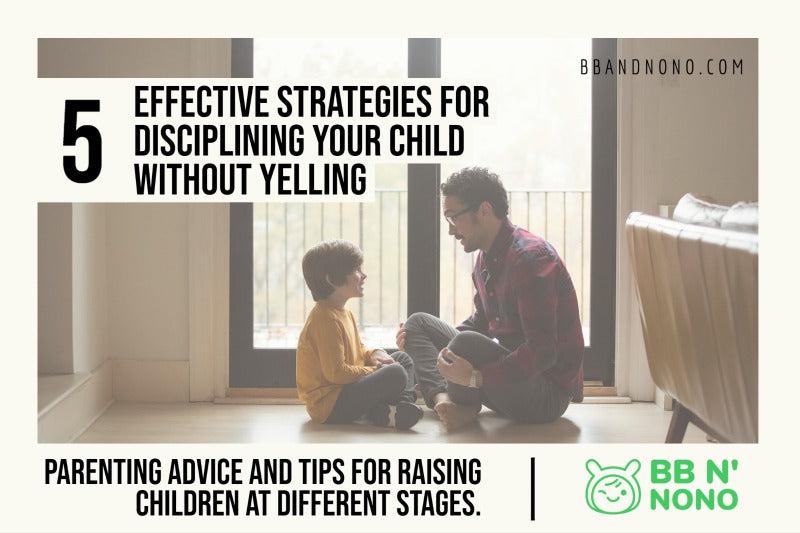5 Effective Strategies for Disciplining Your Child Without Yelling

Disciplining our children is an essential part of parenting, but finding effective strategies that don't involve raising our voices can be a challenge. Yelling may seem like a quick solution, but it can harm our children's emotional well-being and strain the parent-child relationship.
Fortunately, there are alternative approaches to discipline that can promote positive behavior while maintaining a loving and respectful environment. In this article, we'll explore five effective strategies for disciplining your child without resorting to yelling.
Set Clear Expectations
Establishing clear expectations is key to guiding your child's behavior. Sit down with your child and have a calm conversation about the rules and boundaries in your household. Explain why certain behaviors are expected and the consequences of not following them. By setting clear expectations, you give your child a roadmap for appropriate behavior and reduce the need for constant correction.
Use Positive Reinforcement
Positive reinforcement is a powerful tool for encouraging desired behavior in children. When your child demonstrates good behavior, acknowledge and praise them for their efforts. This could be a simple word of appreciation, a high-five, or a special privilege. By highlighting positive behavior, you reinforce the idea that good actions are recognized and rewarded, increasing the likelihood of their repetition.
Time-In Instead of Time-Out
Rather than using punitive measures like time-outs, consider implementing a time-in approach. When your child misbehaves, take a few moments to sit with them and calmly discuss the situation. Use this opportunity to understand their feelings, explain the impact of their behavior, and teach them alternatives. Time-in allows you to address the issue while maintaining a connection with your child, fostering understanding and empathy.
Offer Choices
Empowering your child by offering choices can be an effective way to avoid power struggles. Instead of dictating every aspect of their lives, provide options within reasonable boundaries. For instance, let them choose between two outfits, decide what book to read, or determine the order of their chores. By involving them in decision-making, you promote their sense of autonomy and reduce resistance.
Practice Natural Consequences and Logical Consequences
Natural consequences occur as a direct result of a child's actions. For example, if your child refuses to wear a jacket on a chilly day, they may feel cold. Natural consequences can serve as valuable learning experiences, helping children understand the connection between their choices and outcomes.
Logical consequences, on the other hand, are imposed by parents and are directly related to the misbehavior. For instance, if a child refuses to clean up their toys, they may temporarily lose the privilege of playing with them. Logical consequences should be reasonable, related to the misbehavior, and delivered with empathy.
Disciplining our children without resorting to yelling is not always easy, but it's essential for maintaining a healthy parent-child relationship and promoting positive behavior. By setting clear expectations, using positive reinforcement, implementing time-ins, offering choices, and using natural and logical consequences, we can discipline our children effectively while fostering mutual respect and understanding.
Remember, building a strong foundation of communication, love, and guidance is the key to raising disciplined and emotionally healthy children. Let's embrace these alternative strategies and create a harmonious and supportive environment for our families.


